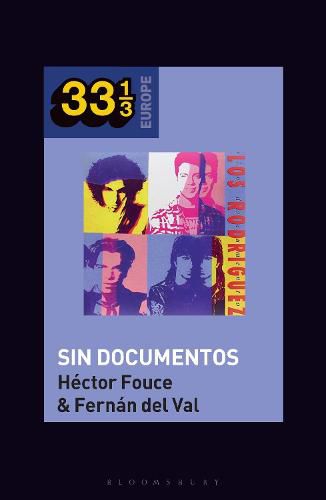Readings Newsletter
Become a Readings Member to make your shopping experience even easier.
Sign in or sign up for free!
You’re not far away from qualifying for FREE standard shipping within Australia
You’ve qualified for FREE standard shipping within Australia
The cart is loading…






Sin documentos is a landmark album in Spanish popular culture and continues to maintain considerable popularity more than two decades after its release. The characteristic guitar riff of the title song, a kind of rumba-rock, still occupies a place at every party in Spain. Los Rodriguez’s success came after a decade characterized by the rise and fall of local-language punk and new wave bands. By the time Sin Documentos appeared, however, most Spanish bands were singing in English and had turned to grunge and noise rock.
How might we explain the significance of this band and its Spanish-language music with Latin-American influences in the decade of the 1990s, which was otherwise dominated by English-language indie and grunge music? This book evaluates the relationship between Spain and Argentina, and recognizes the major influence of Latin American pop-rock on the modernization of Spanish popular music beginning in the 1950s. Through interviews with members of the band and the album producer, analysis of the media coverage of the album, and a cultural analysis of its meanings, it delves into the cultural trends of Spain throughout the 1990s and beyond.
$9.00 standard shipping within Australia
FREE standard shipping within Australia for orders over $100.00
Express & International shipping calculated at checkout
Sin documentos is a landmark album in Spanish popular culture and continues to maintain considerable popularity more than two decades after its release. The characteristic guitar riff of the title song, a kind of rumba-rock, still occupies a place at every party in Spain. Los Rodriguez’s success came after a decade characterized by the rise and fall of local-language punk and new wave bands. By the time Sin Documentos appeared, however, most Spanish bands were singing in English and had turned to grunge and noise rock.
How might we explain the significance of this band and its Spanish-language music with Latin-American influences in the decade of the 1990s, which was otherwise dominated by English-language indie and grunge music? This book evaluates the relationship between Spain and Argentina, and recognizes the major influence of Latin American pop-rock on the modernization of Spanish popular music beginning in the 1950s. Through interviews with members of the band and the album producer, analysis of the media coverage of the album, and a cultural analysis of its meanings, it delves into the cultural trends of Spain throughout the 1990s and beyond.